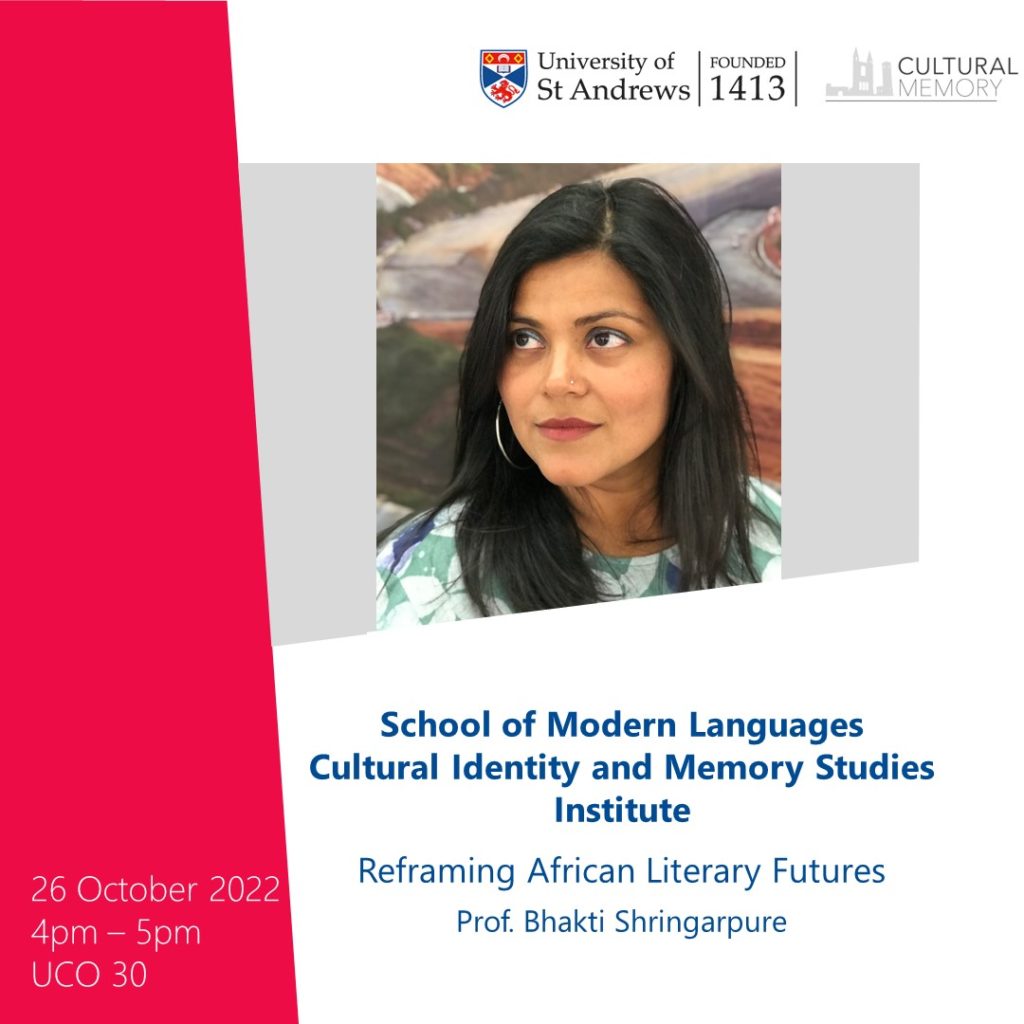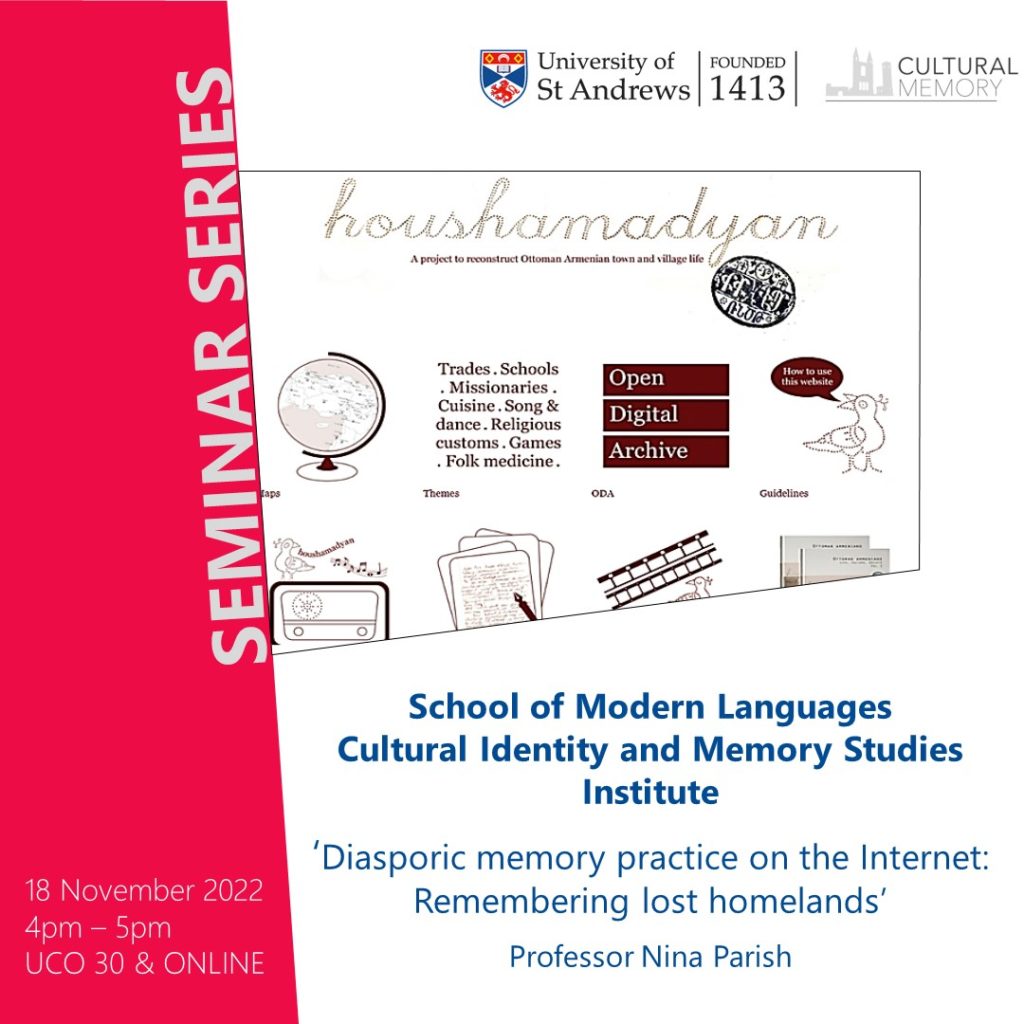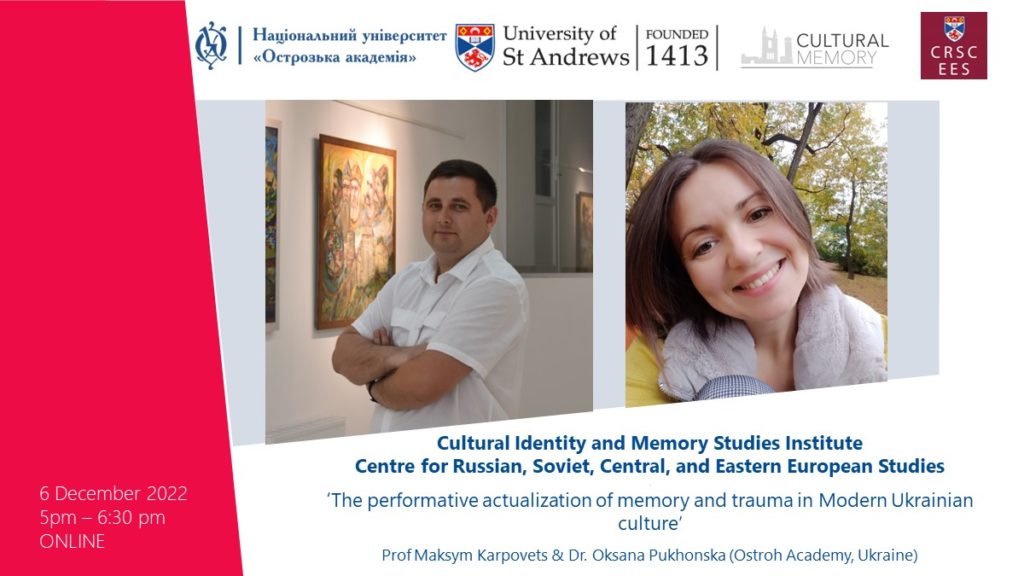- 3 October, 5pm: Professor Shelleen Greene (UCLA), ‘Oenothea’s Gaze: Donyale Luna in Fellini-Satyricon (1969)’. Co-hosted with the Italian Department.
Location: UCO 31
This presentation examines African American model and actress Donyale Luna, who performed the role of Oneathea in Fellini-Satyricon (1969). I argue that similar to many black women artists working in Italy during the 1960s and 1970s, Luna’s presence in the film marks a shift in Italian visual culture during this period, registering both its colonial legacies and its new position within global media industries.. - 26 October, 4pm: Professor Bhakti Shringarpure (University of Connecticut and IASH, Edinburgh), ‘Reframing African Literary Futures’. Location: UCO 30

Over 50 years ago, Ngugi wa Thiong’o, Taban Lo Liyong and Henry Owuor published their manifesto titled “On the Abolition of the English Department,” asking for an end to the mandatory study of white European literature in literature departments. In its place, they offered a deeply considered plan for the study of African literature and languages. Despite these early and largely ignored interventions, universities continue to find themselves in a state of crisis when it comes to decolonizing education, increasing diversity, and transforming the research environment. Within these struggles, the production, publication and the study of African literature finds itself caught in a multitude of historical, cultural and institutional forces. Unlike its European or American counterparts, its lack of fixity and fluctuating sense of self is simultaneously an exciting challenge and a source of frustration. We have entered a peak period for African literature worldwide, but these progressive directions can also reinforce past patterns that have been brought about by colonial disruptions to publishing and cultural formations, and these continue to impact the way Africa and Africans are being represented to themselves in the literature being produced. I return to the histories of the Cold War, arrested decolonization, and skewed genealogies of postcolonial literature in order to speculate on how African literary futures can be reframed.
- 18 November, 4pm: Professor Nina Parish (University of Stirling). ‘Diasporic memory practice on the Internet: Remembering lost homelands‘.
Location: UCO 30 & Online.

This paper will present some collaborative research emerging from the Disputed Territories and Memory project (www.disterrmem.eu), which brings together academic and civil society partners from the UK, Poland, Armenia and Pakistan. It will examine the work of two diasporic memory organisations, Kresy-Siberia and Houshamadyan, which have both developed Internet platforms to collect and share information about lost homelands: in the former case, the pre-World War II eastern borderlands of Poland; in the latter, the Armenian communities of the Ottoman Empire that were destroyed by genocide. The paper asks what difference the creation of an online platform makes to such groups, both for individuals and for the wider diaspora, and seeks to understand how the possibilities offered by these platforms shape diasporic practice. It will endeavour to show how, despite the apparent similarities between the online presences of these two organizations, their use of the Internet facilitates diverse forms of memory practice, which are influenced by the historically specific needs of participants in these different diasporic communities.
- 6 December 5-6:30pm. ONLINE (Zoom). Professor Maksym Karpovets & Dr. Oksana Pukhonska (National University of Ostroh Academy). ‘The performative actualization of memory and trauma in modern Ukrainian culture‘
Co-hosted with the Centre for Russian, Soviet, Central, and Eastern European Studies
.

The researchers raise important and up-to-date issues of the Ukrainian present, exploring them through the concepts of performative theory, trauma and memory studies. The main emphases of the talk will be focused on the Revolution of Dignity (Maidan) and the Russian-Ukrainian war in texts and cultural practices (in particular, literary texts and films) that performatively actualize the traumatic experience of modern Ukrainian society. The authors believe that performativity involves public actualization, explicit attention to these texts and practices, which “work” as a kind of therapy for Ukrainian society, reinforcing to review its values and experience even in times of war.
.
As part of the UK-Ukraine Twinning Initiative, the National University of Ostroh Academy and the University of St Andrews have partnered to share support, resources, and ideas. A Memorandum of Understanding marking this new partnership was signed in November 2022.
.
